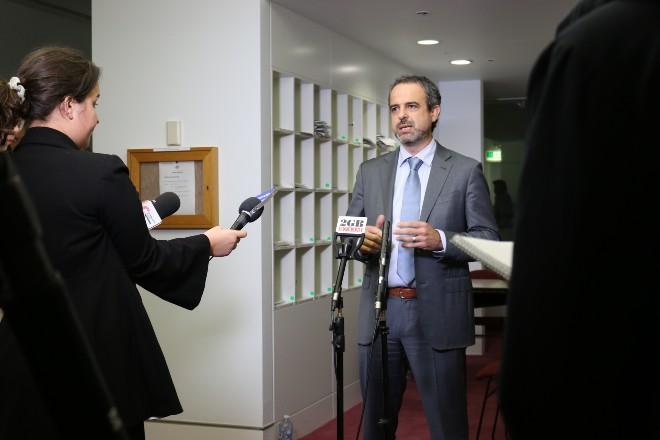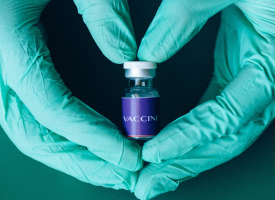Dr Omar Khorshid on hospital pressure, re-introduced restrictions and COVID patients in hospitals for other reasons
Transcript: Dr Omar Khorshid, on Studio 10, Friday, 7 January 2022 on hospitals under extraordinary pressure, re-introduced restrictions and people with COVID in hospital for other reasons.

LACHLAN KENNEDY: State and federal governments continue to assure us that our health system is coping with exploding COVID cases and should we believe it. Should we? I don't know. What would the medical establishment like to see happen? Joining us now is the national president of the Australian Medical Association, Dr Omar Khorshid. Thank you for your time this morning, Doctor. The Prime Minister and the state leaders keep telling us that the hospitals are strong, they are coping. What are you hearing? Is that the situation?
OMAR KHORSHID: Morning guys. Look, the reality is our hospitals are under extraordinary pressure, and those long-suffering staff who've had a very difficult couple of years, instead of having a break over Christmas, they've had their leave cancelled and they're facing huge demand at the front door of the ED whilst their colleagues, their co-workers, other doctors, other nurses, are falling sick, having to stay at home and look after sick children. And you're hearing stories of wards with half or even less than half of their normal number of nurses available to actually fill a shift and look after their patients. So it's almost a perfect storm of pressure. And it's just not true to say our health system is so resilient it can cope with anything, there are limits, unfortunately.
MATTY JOHNSON: So it looks as though New South Wales will be the next state to reintroduce some restrictions. Do you think that will be enough, and what would you like to see happen? And how can we keep functioning as a society?
OMAR KHORSHID: Well unfortunately we're a bit limited in our options at this point. Having decided weeks ago to let it rip, Dominic Perrottet is now seeing the results of that decision.
These new restrictions that we understand may come in today might slightly slow the spread but there's no way they're going to turn this curve around, until everyone is either immune or they've caught the virus. It's going to take some weeks to reach this peak, and therefore, we just have to brace ourselves. We've got to cancel elective surgery. That's coming. We've got to make sure that as many health staff are available as possible, and we've got to make sure that everybody in the community knows how to best look after their health when they catch COVID because it's not going to be going to a hospital ED unless you're really quite sick. If you're moderately sick, you probably need to be in touch with your GP. But for the majority of people who have a mild illness, you don't need a doctor. You just need to go to the Healthdirect website, look at the symptom checker, manager your own health, so that the medical resources are there for those who are less lucky and who are struggling with more severe symptoms.
LACHLAN KENNEDY: Just on the numbers that we're hearing every day, I mean, we now know that many COVID patients in hospital aren't actually there specifically because they have COVID but they're there for other reasons. They just happen to be COVID-positive. I mean, is that giving us an inaccurate picture of the situation? And should we know the difference? Is it important to know the difference?
OMAR KHORSHID: It is really difficult to actually separate people who are coming in with COVID or coming in for COVID. Many people who are less able to cope with COVID have many chronic diseases, chronic conditions, and these can get worse with any virus, even with the flu or a cold. So it's pretty hard to draw a black line and say that person there is a COVID case and the other one is coming in for something else but they've also got COVID. And of course, the impact on the health system is the same. The staff have got to wear PPE, they need special isolation requirements. There is a huge impact of having a single COVID case on a non-COVID ward, and we're now seeing the results of that with the stories that are coming out of New South Wales hospitals.
MATTY JOHNSON: Yeah, it's a little bit scary, isn't it? Dr Omar Khorshid, thank you so much for your time this morning.
OMAR KHORSHID: Cheers, guys.
LACHLAN KENNEDY: We do appreciate it.



